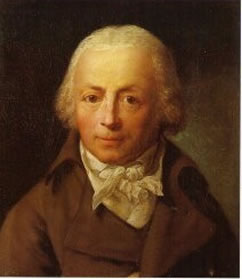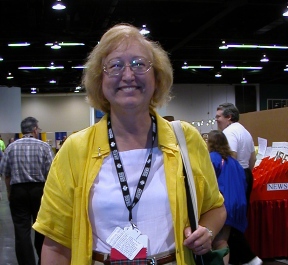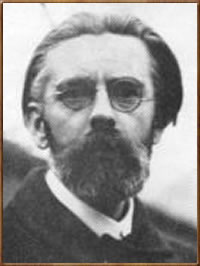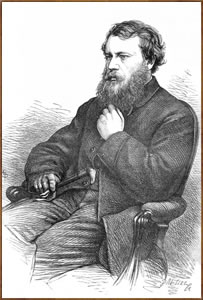De Australische schrijver Dal Stivens werd geboren op 31 december 1911 in Blayney, New South Wales. Van 1944 tot 1949 diende hij in het leger. Daarna werkte hij tot 1950 o.a op het persbureau van het Australia House in London. Hij werd oprichter-president van de Australian Society of Authors. In 1970 won hij de Miles Franklin Award voor de beste Australische roman met A Horse of Air.
Uit: A Horse of Air
„I am the author and amateur naturalist mentioned in the first chapter of this rather unorthodox autobiography by Harold Craddock. I had known and respected Harold Craddock for some years – his contributions to Australian ornithology have been outstanding – but I was never a close friend. Accordingly, I was a little surprised when he asked me to act as his literary godfather, as it were, and handed me the manuscript which with only slight editing appears on the pages that follow. His original idea was that I should use his autobiography as part of the source material for an account of the expedition he led to central Australia in 1967. His manuscript, as he was at pains to point out, was a subjective account and was deficient in many details. “Moreover, it’s a bit wild in places – you’ll need to get people to corroborate some of the things I’ve written,” he said. This was my own first reaction, and I, accordingly, spent several months interviewing other people who had accompanied Harold Craddock and gathering the mass of material necessary for a straightforward account of the Craddock and Drake Expedition to find the rare night parrot. It was only when I had accumulated a mass of material that I realized that the finest memorial to my friend was to publish his autobiography much as he had written it, with only minor interpolations by others where accounts differed. Who was I, for instance, to judge whether Harold Craddock, or someone else, was being truthful? The truth about anything must be disputable. As he asks in the autobiography, which is the reality and which is the dream? Most of the people mentioned have consented to the references made to them even though they did not always agree that they acted as Harold Craddock said they did or from the motives he imputed to them. They have, in fact, behaved with extraordinary magnanimity. In a few places only they have interpolated mild demurrers. Occasionally it has been necessary to use invented names and alter details.“

Dal Stivens (31 december 1911 – 16 juni 1997)
De Uruguayaanse schrijver Horacio Quiroga werd geboren op 31 december 1878 in Salto. Hij had een wel zeer door tragedies beheerst leven. Zijn vader schoot zichzelf tijdens een uitstapje met het gezin per ongeluk dood, twee van zijn broers overleden op jonge leeftijd, zijn stiefvader pleegde in zijn aanwezigheid zelfmoord, zijn eerste vrouw nam een fatale dosis cyanide in en hijzelf schoot per abuis een vriend dood, toen hij diens pistool inspecteerde ter voorbereiding op een duel. Toch besloot Quiroga kort na dit laatste ongeluk het relatief veilige leven aan de Rio de la Plata in te ruilen voor een onzeker bestaan in het binnenland van Argentinië. Hij vestigde zich in de provincie Misiones, waar zijn inspanningen om een plantage van de grond te krijgen op een mislukking uitliepen.. Als literator trof hij het beter: het ruige leven in het oerwoud inspireerde hem tot het schrijven van een reeks verhalen, die een uitlaatklep vormden voor zijn obsessie met de dood.
Hoewel Quiroga ook romans en gedichten publiceerde, dankt hij zijn faam vooral aan de bijna tweehonderd verhalen die hij heeft geschreven.
Uit: The Feather Pillow
„Alicia’s entire honeymoon gave her hot and cold shivers. A blonde, angelic, and timid young girl, the childish fancies she had dreamed about being a bride had been chilled by her husband’s rough character. She loved him very much, nonetheless, although sometimes she gave a light shudder when, as they returned home through the streets together at night, she cast a furtive glance at the impressive stature of her Jordan, who had been silent for an hour. He, for his part, loved her profoundly but never let it be seen.
For three months–they had been married in April–they lived in a special kind of bliss.
Doubtless s
he would have wished less severity in the rigorous sky of love, more expansive and less cautious tenderness, but her husband’s impassive manner always restrained her.
The house in which they lived influenced her chills and shuddering to no small degree. The whiteness of the silent patio–friezes, columns, and marble statues–produced the wintry impression of an enchanted palace. Inside the glacial brilliance of stucco, the completely bare walls, affirmed the sensation of unpleasant coldness. As one crossed from one room to another, the echo of his steps reverberated throughout the house, as if long abandonment had sensitized its resonance.
Alicia passed the autumn in this strange love nest. She had determined, however, to cast a veil over her former dreams and live like a sleeping beauty in the hostile house, trying not to think about anything until her husband arrived each evening.
It is not strange that she grew thin. She had a light attack of influenza that dragged on insidiously for days and days: after that Alicia’s health never returned. Finally one afternoon she was able to go into the garden, supported on her husband’s arm. She looked around listlessly.“

Horacio Quiroga (31 december 1878 – 19 februari 1939)
De Duitse dichter en schrijver Gottfried August Bürger werd geboren op 31`december 1747 in Molmerswende. Zie ook mijn blog van 31 december 2006 en ook mijn blog van 31 december 2007 en ook mijn blog van 31 december 2008.
Der versetzte Himmel
Licht und Lust des Himmels zu erschauen,
Wo hinan des Frommen Wünsche schweben,
Muß dein Blick sich über dich erheben,
Wie des Betenden voll Gottvertrauen.
Unter dir ist Todesnacht und Grauen.
Würde dir ein Blick hinab gegeben,
So gewährtest du mit Angst und Beben
Das Gebiet der Höll und Satans Klauen.
Also spricht gemeiner Menschenglaube.
Aber wann aus meines Armes Wiege
Mollys Blick empor nach meinem schmachtet:
Weiß ich, daß im Auge meiner Taube
Aller Himmelsseligkeit Genüge
Unter mir der trunkne Blick betrachtet.
An das Herz
Lange schon in manchem Sturm’ und Drange
Wandeln meine Füße durch die Welt.
Bald den Lebensmüden beigesellt,
Ruh ich aus von meinem Pilgergange.
Leise sinkend faltet sich die Wange;
Jede meiner Blüten welkt und fällt.
Herz, ich muß dich fragen: Was erhält
Dich in Kraft und Fülle noch so lange?
Trotz der Zeit Despoten-Allgewalt,
Fährst du fort, wie in des Lenzes Tagen,
Liebend wie die Nachtigall zu schlagen.
Aber ach! Aurora hört es kalt,
Was ihr Tithons Lippen Holdes sagen. –
Herz, ich wollte, du auch würdest alt!

Gottfried August Bürger (31 december 1747 – 8 juni 1794)
Portret door Anton Graff, 1792
De Franse schrijfster gravin Marie de Flavigny d’Agoult werd in 1805 geboren in Frankfurt Am Main. Zie ook mijn blog van 31 december 2008.
Uit: Dante et Goethe
„PREMIER DIALOGUE.
DIOTIME, ÉLIE.–Un peu plus tard, VIVIANE, MARCEL.
Ils marchaient sur la grève sans se parler. Ils s’étaient d’abord entretenus de leurs amis et d’eux-mêmes, de leurs opinions sur les choses du jour. Puis, insensiblement, le silence s’était fait. La
grandeur de ce lieu désert s’imposait à eux. La marée qui montait lentement, en battant de ses flots le cap Plouha, imprimait à leur esprit son rhythme solennel.–À quoi pensez-vous? dit enfin Élie.
DIOTIME.
La question est brusque. La réponse va vous surprendre… Je pense à Dante.
ÉLIE.
À Dante!… ici! au poëte florentin, sur les côtes de Bretagne! Voilà qui me surprend, en effet.
DIOTIME.
Ce site est véritablement dantesque. Regardez ces formidables entassements de rochers, précipités les uns sur les autres! Voyez ces blocs de granit aux flancs noirs, tout hérissés d’algues marines, que la vague, en se retirant, laisse couverts d’écume, et que d’ici l’on prendrait pour des monstres accroupis sur le sable! Écoutez les gémissements du flot qui s’engouffre dans ces antres béants! Ne se croirait-on pas aux abords d’un monde infernal? Tout à l’heure, à la lueur blafarde de votre triste soleil, il me semblait lire sur ce pan de roc taillé à pic l’inscription sinistre: _Per me si va_; et je voyais,
là-bas, dans cet enfoncement, l’ombre de Dante, qui s’avançait, pâle et muette, vers les régions obscures“.

Marie d’Agoult (31 december 1805 – 5 maart 1876)
Portret door Henri Lehmann, 1843
De Amerikaanse (sciencefiction) schrijfster Connie Willis werd geboren in Denver (Colorado) op 31 december 1945. Zie ook mijn blog van 31 december 2008.
Uit: Miracle and Other Christmas Stories
„We’ve had births at Christmas (natch!), deaths, partings, meetings, mayhem, attempted suicides, and sanity hearings. And Christmas in Hawaii, in China, in the past, the future, and outer space. We’ve heard from the littlest shepherd, the littlest wise man, the littlest angel, and the mouse who wasn’t stirring. There’s not a lot out there that hasn’t already been done.
In addition, the Christmas-story writer has to walk a narrow tightrope between sentiment and skepticism, and most writers end up falling off into either cynicism or mawkish sappiness.
And, yes, I am talking about Hans Christian Andersen. He invented the whole three-hanky sob story, whose plot Maxim Gorki, in a fit of pique, described as taking a poor girl or boy and letting them “freeze somewhere under a window, behind which there is usually a Christmas tree that throws its radiant splendor upon them.” Match girls, steadfast tin soldiers, even snowmen (melted, not frozen) all met with a fate they (and we) didn’t deserve, especially at Christmas.
Nobody, before Andersen came along, had thought of writing such depressing Christmas stories. Even Dickens, who had killed a fair number of children in his books, didn’t kill Tiny Tim. But Andersen, apparently hell-bent on ruining everybody’s holidays, froze innocent children, melted loyal toys into lumps of lead, and chopped harmless fir trees who were just standing there in the forest, minding their own business, into kindling.“

Connie Willis (Denver, 31 december 1945)
De Italiaanse dichter Giovanni Pascoli werd geboren op 31 december 1855 in San Mauro di Romagna. Zie voor onderstaande schrijver ook mijn blog van 31 december 2006 en ook mijn blog van 31 december 2008.
In the Fog
I stared into the valley: it was gone—
wholly submerged! A vast flat sea remained,
gray, with no waves, no beaches; all was one.
And here and there I noticed, when I strained,
the alien clamoring of small, wild voices:
birds that had lost their way in that vain land.
And high above, the skeletons of beeches,
as if suspended, and the reveries
of ruins and of the hermit’s hidden reaches.
And a dog yelped and yelped, as if in fear,
I knew not where nor why. Perhaps he heard
strange footsteps, neither far away nor near—
echoing footsteps, neither slow nor quick,
alternating, eternal. Down I stared,
but I saw nothing, no one, looking back.
The reveries of ruins asked: “Will no
one come?” The skeletons of trees inquired:
“And who are you, forever on the go?”
I may have seen a shadow then, an errant
shadow, bearing a bundle on its head.
I saw—and no more saw, in the same instant.
All I could hear were the uneasy screeches
of the lost birds, the yelping of the stray,
and, on that sea that lacked both waves and beaches,
the footsteps, neither near nor far away.
Vertaald door Geoffrey Brock

Giovanni Pascoli (31 december 1855 – 6 april 1912)
De Vlaamse dichter, advocaat en rechter August van Cauwelaert werd geboren in Onze-Lieve-Vrouw-Lombeek op 31 december 1885. Hij liep zijn middelbare school aan het Klein Seminarie in Hoogstraten. In 1911 behaalde hij zijn doctoraat in rechten, aan de Universiteit van Leuven. In 1914, toen WO I uitbrak gaf hij zich op als vrijwilliger voor het Belgisch leger. Hij werd officier maar in 1916 raakte hij zwaar gewond, in de loopgraven van Passendale. Na de oorlog werd hij vrederechter in Kontich, later politierechter in Antwerpen. Zijn dichtwerk werd vooral beïnvloed door Guido Gezelle en Karel van de Woestijne. Liederen van droom en daad uit 1918 is een poëtische weergave van de oorlogsjaren. Latere dichtbundels als Het licht achter de heuvel uit 1929 zijn sterk religieus geïnspireerd. Vanaf 1932 was Van Cauwelaert hoofdredacteur van het blad Dietsche Warande en Belfort.
Voor mijn jongens 1
1 Januari 1916
Hoe staat ge daar grootsch met uw zwijgenden trots,
De koppen gebruind en de voeten vereelt,
Zoo stoer met uw helm en geweer lijk gebeeld
Uit brons of arduin of uit ruwere rots.
Mijn jongens, hoe staat ge daar sterk en wat steekt
Er diep in uwe oogen een donkere brand;
Wat steekt er een kracht in den greep van uw hand
En wil in het spaarzame woord dat ge spreekt.
Schoon kerels, die vrij waart te huis en geen hoon
Of dwang hebt geduld en die kendet geen nood;
Die werkte als ge wildet, maar wrocht voor uw brood,
Hoe zwaarder uw arbeid hoe rijker uw loon.
Nu hebt ge den honger gekend en den dorst;
Nu hebt ge geslapen op stroo als een hond,
In hak en in schuur of in ’t lijk van den grond
En nachten gesloofd voor een karige korst.
Nu hebt ge in den dans en den daver gestaan;
Nu hebt ge er zien vallen, verminkt en vermoord,
De besten het eerst; maar geen zucht of geen woord:
Te sterk voor een klacht en te trotsch voor een traan.
Nu hebt ge den angst en den twijfel gekend,
Voor ’t lot en voor ’t leven van ouder en kroost;
En over den Yzer zoo vaak als om troost
Uw blik naar de torens van Vlaandren gewend.
Maar geen die zijn woord en zijn wapen verried;
De geest is nog helder en hoog bleef het hart.
Ge dookt als een schande de mom van uw smart
En stapt naar den dood met een lach en een lied.
Ondwingbaar jong ras, met uw duldenden moed
En staalharde zielen, van al wat er vecht
En valt onder ’t vaandel van roof of van recht:
Is uw bloed het zuiverste en edelste bloed.

August van Cauwelaert (31 december 1885 – 4 juli 1945)
De Schotse dichter Alexander Smith werd geboren op 31 december 1830 in Kilmarnock. Omdat zijn ouders te arm waren om schoolgeld te betalen stuurden zij hen naar een linnenfabriek in Glasgow. Zijn eerste gedichten verschenen in de Glasgow Citizen. Zijn eerste bundel A Life Drama and other Poems (1853) werd goed ontvangen en leverde hem uiteindelijk een post op als secetaris aan de universiteit van Edinburgh.
Love
The fierce exulting worlds, the motes in rays,
The churlish thistles, scented briers,
The wind-swept bluebells on the sunny braes,
Down to the central fires,
Exist alike in Love. Love is a sea
Filling all the abysses dim
Of lornest space, in whose deeps regally
Suns and their bright broods swim.
This mighty sea of Love, with wondrous tides,
Is sternly just to sun and grain;
‘Tis laving at this moment Saturn’s sides,
‘Tis in my blood and brain.
All things have something more than barren use;
There is a scent upon the brier,
A tremulous splendour in the autumn dews,
Cold morns are fringed with fire.
The clodded earth goes up in sweet-breath’d flowers;
In music dies poor human speech,
And into beauty blow those hearts of ours
When Love is born in each.
Daisies are white upon the churchyard sod,
Sweet tears the clouds lean down and give.
The world is very lovely. O my God,
I thank Thee that I live!

Alexander Smith (31 december 1830 – 5 januari 1867)
